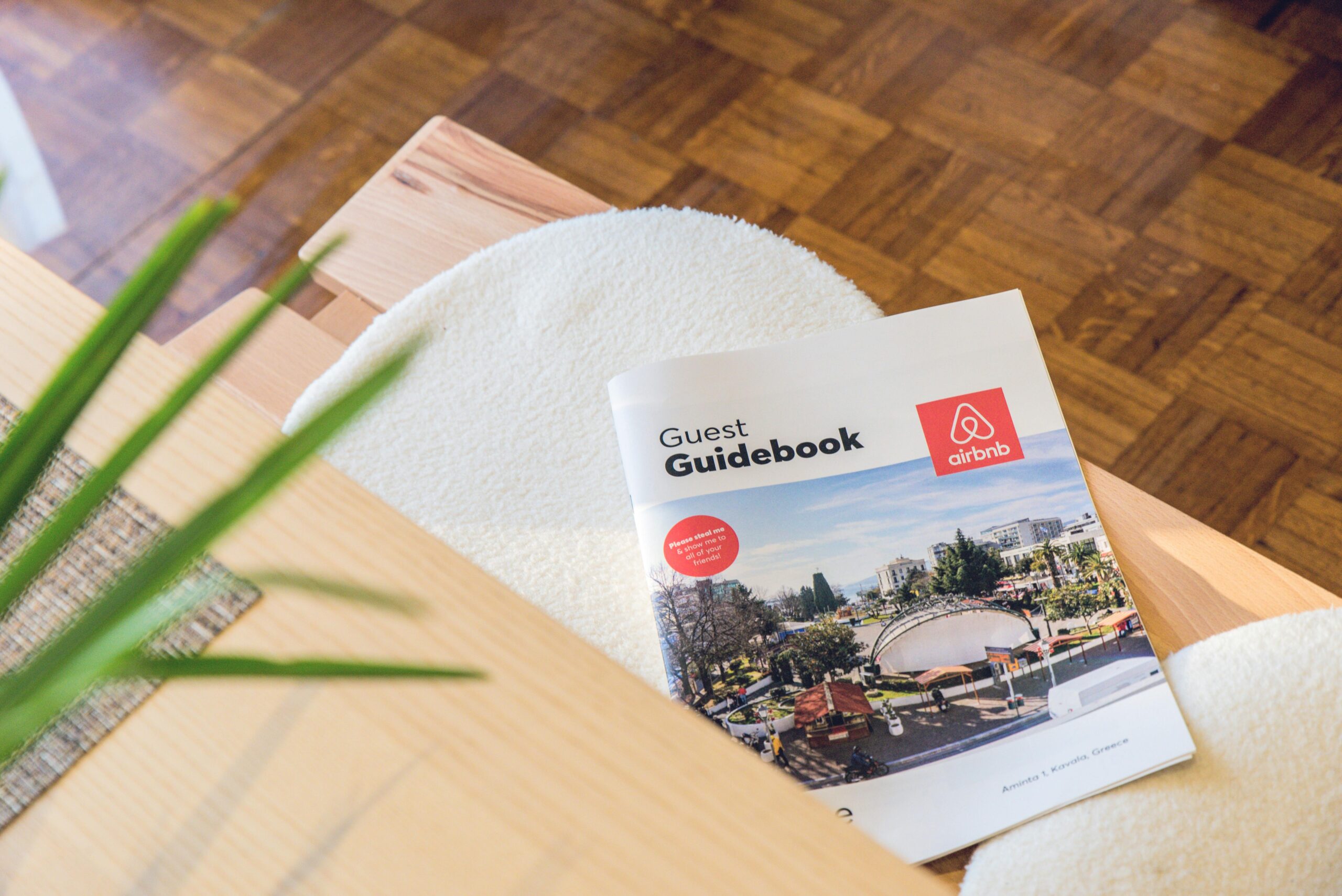In today’s digital landscape, building authority in your niche is crucial for success, and one of the most effective ways to achieve this is through consistent blogging. Have you ever wondered how some bloggers seem to effortlessly attract a loyal following while others struggle to gain traction? The answer lies in the power of engaging content and a well-planned blogging strategy. By committing to a regular blogging schedule, you not only improve your writing skills but also establish yourself as a trusted voice in your field.
In this article, we’ll uncover the secrets to unlocking success through consistent blogging. You’ll learn how to create compelling posts that resonate with your audience, optimize your content for search engines, and build a community around your brand. Are you ready to elevate your blog and enhance your online presence? From selecting trending topics to leveraging social media for greater reach, we’ll provide you with actionable tips that can dramatically boost your blog authority.
Don’t let the competition leave you in the dust! By adopting a strategic approach to blogging, you can position yourself as an industry leader and attract opportunities that align with your business goals. Whether you’re a seasoned blogger or just starting out, the insights shared in this article will guide you on your journey to building authority and achieving sustainable growth. So, let’s dive into the transformative world of consistent blogging and discover how it can unlock the doors to your success!
7 Proven Strategies to Establish Your Blogging Authority and Dominate Your Niche

In the fast-paced world of digital marketing, establishing authority in your niche is key, especially for bloggers. Many people wants to know how to build authority through consistent blogging. It’s not just about writing, it’s about being seen as an expert. This article will explore 7 proven strategies to establish your blogging authority and dominate your niche.
1. Find Your Unique Voice
Before you start writing, you should really find your unique voice. This is what sets you apart from others in your field. When you write in a way thats authentic to you, readers can connect more easily. For example, if you’re funny, let that shine through your posts. If you’re serious, then maintain that tone. Authenticity is attractive, and it makes people trust you.
2. Consistent Posting Schedule
You know what they say, consistency is key. If you post regularly, your audience will know when to expect new content. It creates a habit. Most successful bloggers recommend a minimum of once a week, but you could do more if you feel comfortable. Create a content calendar to plan your posts ahead of time. Here’s a simple breakdown of a weekly schedule:
- Monday: Research trending topics
- Tuesday: Write and edit post
- Wednesday: Create visuals
- Thursday: Publish post
- Friday: Promote on social media
3. Engage with Your Audience
Interaction is crucial for building authority. Responding to comments, emails, or even social media messages shows your readers you care. It also builds a community around your blog. People are more likely to trust you when they feel like they are part of a conversation. You could host Q&A sessions or live chats to engage even more. Make it a priority to reply to at least 80% of your audience’s comments.
4. Collaborate with Other Bloggers
Networking is a great way to boost your authority. When you collaborate with other bloggers, you can reach their audience too. Consider guest posting on each other’s blogs or co-hosting webinars. This not only exposes you to new readers but also builds credibility. You could create a list of bloggers in your niche and reach out. Here’s a quick list of collaboration ideas:
- Guest posts
- Joint webinars
- Social media takeovers
- Podcast interviews
5. Use Data to Back Your Claims
In the world of blogging, facts matter. When you provide data and statistics, you increase your credibility. Use reputable sources and cite them. This not only helps your readers trust you more, but it also improves your SEO. A well-researched blog post is more likely to get shared. For instance, if you are talking about SEO, referencing studies from companies like Moz or HubSpot can add weight to your arguments.
6. Optimize for SEO
To build authority through consistent blogging, you gotta think about SEO. If your blog isn’t optimized, potential readers may never find your content. Use relevant keywords, meta descriptions, and alt text for images. You can utilize tools like Google Keyword Planner or SEMrush to find the best keywords for your niche. Here’s a short list of essential SEO practices:
- Use keyword-rich titles
- Optimize image sizes for quicker loading
- Utilize internal and external links
- Craft compelling meta descriptions
7. Create High-Quality Content
At the end of the day, the content is king. Your readers are there for valuable information. If your posts are well-researched, informative, and engaging, they will want to return. Aim to write content that answers questions or solves problems. You can use storytelling, case studies, and real-life examples to enrich your posts. A well-crafted blog post can be what sets you apart from your competitors.
In summary, establishing your blogging authority isn’t an overnight process. But by following these 7 proven strategies, you can unlock success in your niche. Remember to stay true to your voice, engage with your readers, and provide value consistently. Building authority through consistent blogging takes time and effort but is ultimately rewarding. Embrace the journey, and you’ll find yourself dominating your niche before you know it.
How Consistent Blogging Boosts Your Credibility: 5 Essential Tips to Get Started

Blogging is more than just putting words on a page; it’s about establishing your credibility in a crowded digital space. When you consistently share quality content, you’re not only engaging your audience but also building authority in your niche. The power of consistent blogging is undeniable, especially in a competitive market like New York. So, if you want to boost your credibility and unlock the doors to success, here’s how you can get started.
The Importance of Consistency in Blogging
You might be wondering why consistency is key. First off, it helps your audience trust you. When people see you regularly posting valuable content, they begin to recognize you as an expert. This is crucial in a city like New York where competition is fierce and attention spans are short. Plus, search engines like Google also rewards websites that update their content regularly. This means, the more consistent you are, the higher your chances of ranking well.
Some key benefits of consistent blogging includes:
- Improved SEO Ranking: Fresh content attracts search engines.
- Increased Traffic: Regular posts draw more visitors.
- Enhanced Engagement: Readers are more likely to interact and share your content.
- Stronger Relationships: Your audience feels connected to you.
- Brand Authority: Establishes you as a thought leader.
5 Essential Tips to Get Started
Set a Realistic Schedule: You don’t need to blog every day. Find a frequency that works for you, whether it’s weekly, bi-weekly, or monthly. Just make sure you stick to it.
Choose Relevant Topics: Write about what matters to your audience. Research trending topics in your industry, and consider using tools like Google Trends or BuzzSumo to find what people are searching for. This will make your content more valuable and shareable.
Engage with Your Audience: Encourage comments and feedback on your blog posts. Responding to readers shows that you value their opinions and helps build a community around your brand. Plus, it can provide you with insights into what your audience wants to read next.
Utilize Social Media: Share your blog posts on social media platforms. This increases visibility and can drive traffic to your site. Use hashtags relevant to your industry to reach a broader audience, and don’t forget to engage with people who comment on your posts.
Analyze Your Performance: Regularly check your blog’s analytics to see what works. Look at metrics like page views, bounce rates, and user engagement. This data can help you refine your content strategy and focus on what resonates with your audience.
Building Authority Through Quality Content
Now, let’s talk about how you can build authority through your content. Authority isn’t just about quantity; it’s about quality too. High-quality content that provides value to your readers is what ultimately establishes you as a trusted source. Here are some strategies to ensure your content stands out:
- In-depth Research: Make sure to back up your claims with data and credible sources. This not only enhances your content but also builds trust.
- Unique Perspectives: Share your insights and personal experiences. This gives your blog a unique voice and makes it relatable.
- Guest Blogging: Collaborate with other bloggers or experts in your field. This helps you tap into their audiences and boosts your credibility through association.
Real-Life Examples of Successful Blogging
Many businesses in New York have mastered the art of blogging to build authority. For example, digital marketing agencies often share case studies showcasing their successes. This not only demonstrates their expertise but also provides potential clients with clear examples of what they can achieve.
Another great example includes local restaurants that blog about their culinary journey, share recipes, or discuss sourcing ingredients. This not only engages their customers but also establishes them as experts in their cuisine.
Keeping Your Audience Engaged
Finally, remember that engagement is a two-way street. Encourage your readers to share their thoughts, and make sure to respond to them. Consider adding a call-to-action at the end of each post, inviting readers to join the conversation or share your blog. Regularly updating your content can also keep it relevant and fresh, which is critical in the fast-paced digital landscape.
In the world of digital marketing, consistency in blogging can be a game-changer for your credibility and authority. By following these tips and maintaining a commitment to quality and engagement, you can unlock the success that comes with being recognized as a thought leader in your industry. So, start embracing the power of consistent blogging today!
Unlock the Secrets: What Successful Bloggers Do Differently to Build Authority

In the bustling world of digital marketing, the journey to build authority often seems like a complex maze. Many bloggers struggle to achieve the recognition that comes with authority, and it’s not just about having good content. So, what do successful bloggers do differently to stand out? It’s time to unlock the secrets: How to build authority through consistent blogging can be a game changer for your online presence.
Understanding Authority in Blogging
Authority in blogging refers to the credibility and trustworthiness that a blogger establishes with their audience. It’s not just about having a large following; it’s about being recognized as an expert in your niche. This can lead to more engagement, collaborations, and even monetization opportunities.
Some key elements of authority include:
- Expertise: Knowledgeable in your niche.
- Consistency: Regularly posting content.
- Engagement: Interacting with your audience.
- Quality: Providing valuable information.
The Role of Consistent Blogging
Many think that just writing a few posts will get them noticed, but the truth is, consistency is vital. Regularly publishing blog posts helps build momentum and keeps your audience engaged. It’s like watering a plant; without consistent care, it wilts and dies.
Here are a few reasons why consistent blogging is essential:
- Search Engine Optimization (SEO): Search engines favor websites that update frequently with fresh content. This can improve your ranking on Google, making it easier for potential readers to find you.
- Audience Retention: When readers know that you post regularly, they are more likely to return for more. This builds a loyal audience over time.
- Establishing Trust: Regular content creation shows your commitment to your niche, which helps establish trust with your readers.
What Successful Bloggers Do Differently
Successful bloggers tend to have a few strategies they swear by. Many of these might sound simple, but they are effective. Here are some of the most impactful strategies:
- Set a Blogging Schedule: Successful bloggers often set a specific posting schedule, whether it’s once a week or bi-weekly. This helps them stay organized and committed.
- Engage with Readers: Responding to comments and emails shows that you value your audience. This interaction can boost your authority and encourages readers to return.
- Diversify Content Types: Mixing up content types, like using videos, infographics, and podcasts, keeps things interesting and can reach different segments of your audience.
- Guest Blogging: Many successful bloggers write for other blogs in their niche. This not only broadens their reach but also helps them gain backlinks, which can improve SEO.
Strategies for Building Authority Through Blogging
If you want to build authority through consistent blogging, consider implementing these strategies:
- Identify Your Niche: Be specific about what you want to write about. A defined niche helps you attract a targeted audience.
- Create High-Quality Content: Focus on providing valuable and informative content. Research your topics thoroughly and cite credible sources.
- Optimize for SEO: Use relevant keywords, meta descriptions, and alt tags for images. This can help your posts rank better in search engines.
- Network with Other Bloggers: Building relationships with fellow bloggers can lead to collaborations, guest posts, and increased visibility.
- Use Social Media: Share your blog posts on social media platforms. This not only drives traffic but also helps you connect with a wider audience.
Real-Life Examples of Successful Bloggers
Many bloggers have made a name for themselves through these tactics. For instance:
- Pat Flynn: His blog Smart Passive Income focuses on transparency and providing actionable advice. He consistently posts valuable content, engages with his audience, and uses multiple formats.
- Marie Forleo: Known for her engaging and energetic style, she often mixes video content with written blogs. Her consistency in posting and engaging with her audience helped her build a strong authority in the business coaching niche.
Final Thoughts
Building authority through consistent blogging doesn’t happen overnight. It requires dedication, strategy, and a willingness to adapt. By implementing the secrets of successful bloggers and committing to regular, high-quality content creation, you can unlock your own success. Remember, authority is built over time, but with the right approach, you can establish yourself as a respected voice in your niche. Embrace the journey and enjoy the process.
The Ultimate Guide to Authority-Building: 10 Types of Blog Content That Engage Readers

In the digital marketing landscape, building authority through consistent blogging is vital for anyone wanting to engage readers and enhance their online presence. Authority-building not only establishes you or your business as a thought leader but also strengthens your brand’s credibility. This guide will explore ten types of blog content that engage readers, helping you unlock success through strategic blogging practices.
Why is Authority Important?
Authority in the online world is like gold. It garners trust, increases visibility, and enhances engagement. Readers are more likely to interact with content from sources they perceive as reputable. When you consistently publish valuable content, you not just inform but also persuade your audience to trust you, leading to increased loyalty and higher conversion rates.
1. How-To Guides
How-to guides are among the most effective types of content for engaging readers. People are constantly looking for solutions, and a well-crafted guide can address their needs.
- Step-by-step instructions
- Visual aids or infographics
- Examples from real-life situations
For instance, a blog on “How to Optimize Your Website for SEO” can break down the process into manageable steps, making it easier for readers to follow along.
2. List Posts
List posts are popular because they are easy to read and digest. They provide valuable information in a concise format, which is perfect for busy readers.
- Use catchy titles like “10 Tips for Better Blogging”
- Include actionable items
- Keep each point brief and to the point
List posts not only engage but also encourage social sharing, increasing your reach.
3. Expert Interviews
Interviewing experts in your field can add immense value to your blog. Not only do you gain insights from knowledgeable sources, but you also position yourself as an authority by association.
- Prepare thoughtful questions
- Highlight key insights
- Promote the interview on social media
These interviews can attract new readers who admire the featured expert, bringing their audience to your platform.
4. Case Studies
Case studies are powerful tools for demonstrating success and building authority. They offer in-depth analyses of specific situations, showcasing your expertise.
- Detail the problem, solution, and results
- Use data to support your claims
- Include testimonials if possible
This type of content not only educates your audience but also illustrates your capability to deliver results.
5. Opinion Pieces
Opinion pieces allow you to express your thoughts on current trends or issues in your industry. This type of content can spark discussions, encouraging reader engagement.
- Be clear about your stance
- Back your opinions with facts or research
- Invite readers to share their views
By sharing your perspective, you can differentiate yourself from competitors and establish a unique voice.
6. Resource Roundups
Curating a list of resources can save your readers time and effort. A well-compiled resource roundup serves as a valuable reference point for your audience.
- Include links to articles, tools, or videos
- Organize content by categories
- Update regularly to keep information fresh
These posts not only engage readers but position you as a go-to source for information.
7. Tutorials
Tutorials are similar to how-to guides but more focused on teaching a specific skill or technique. They can be particularly engaging when they involve multimedia elements like videos or slideshows.
- Break down complex topics
- Use visuals to enhance understanding
- Provide downloadable materials if applicable
By teaching something of value, you foster trust and encourage readers to return for more learning.
8. Personal Stories
Sharing personal experiences can humanize your brand and create a connection with your audience. When readers see the person behind the blog, they are more likely to engage.
- Be authentic and relatable
- Highlight lessons learned
- Encourage readers to share their stories
This type of content builds community and fosters loyalty among your readers.
9. Infographics
Visual content like infographics can break down complex information into easily digestible formats. They are highly shareable and can attract backlinks to your blog, boosting your authority.
- Focus on a single topic
- Use engaging visuals and colors
- Provide clear and concise information
Creating infographics can also be a fun way to present your data while engaging your audience visually.
10. FAQs
Creating a frequently asked questions (FAQ) section can address common queries your audience might have. This not only helps engage readers but also positions you as an authority in your field.
- Identify common questions
- Provide thorough answers
- Update as new questions arise
By proactively addressing concerns, you can enhance user experience and build trust.
To build authority through consistent blogging, it’s crucial to produce diverse types of content that resonate with your audience. Engage readers through how-to guides, expert interviews, and personal stories, and watch your authority grow. Consistency is key; as you continue to share valuable insights, your online presence will become stronger and more credible. Remember, building authority takes time, so be
Are You Making These 5 Blogging Mistakes? Learn How to Build Authority Effectively

In today’s digital landscape, blogging has become one of the most powerful tools for establishing authority and credibility. Many people start their blogs, but not everyone succeed. Are you making these 5 blogging mistakes? Learn how to build authority effectively, and how to build authority through consistent blogging. If you want to unlock success in your blogging journey, you must avoid these common pitfalls.
1. Neglecting Your Audience
Understanding your audience is crucial for any successful blog. A lot of bloggers write without considering who they’re writing for. This is a big mistake! You need to identify your target audience, their interests, and what problems they face. Once you know this, you can create content that resonates with them.
- Create reader personas to visualize your audience.
- Use analytics tools to gather data on your readers.
- Ask for feedback through surveys or comments.
Ignoring your audience will lead to content that does not engage or provide value, which can ultimately hurt your authority.
2. Inconsistent Posting Schedule
Consistency is key when it comes to blogging. If you post sporadically, your audience will lose interest. It’s important to develop a consistent posting schedule. Regular updates not only keeps your readers engaged, but also signals to search engines that your site is active.
Consider the following tips for maintaining consistency:
- Decide on a publishing frequency that works for you (daily, weekly, or bi-weekly).
- Use a content calendar to plan your posts in advance.
- Set reminders to keep yourself accountable.
When you’re consistent, you build trust with your audience, which in turn helps establish your authority.
3. Failing to Optimize for SEO
Search Engine Optimization (SEO) is vital for getting your blog noticed. Many bloggers overlook this aspect, thinking that good content alone will attract readers. This is simply not true. Without proper SEO, your blog may remain invisible to search engines.
Here’s how to optimize your blog for SEO:
- Use relevant keywords throughout your content.
- Optimize your titles and meta descriptions.
- Include internal and external links to improve credibility.
If you neglect SEO, you’re missing out on potential traffic and readers who could benefit from your insights.
4. Overlooking the Importance of Quality
In the quest to produce content, many bloggers prioritize quantity over quality. Publishing low-quality posts can damage your reputation and authority. It’s better to have fewer high-quality posts than a lot of mediocre ones.
To ensure quality, consider these practices:
- Research your topics thoroughly before writing.
- Edit and proofread your posts to eliminate errors.
- Use engaging visuals to complement your text.
High-quality content not only attracts readers but also encourages them to share your posts, further enhancing your authority.
5. Ignoring Engagement and Community Building
Blogging is not just about publishing your thoughts; it’s about building a community. Ignoring your readers and not engaging with them can result in a lack of loyalty and interest in your content. Responding to comments and fostering discussions can enhance your blog’s vibrancy and authority.
Here are some ways to engage with your audience:
- Respond to comments on your posts.
- Encourage discussions by asking questions.
- Share user-generated content and testimonials.
Building a community around your blog can create a loyal readership that values your insights and expertise.
Building Authority Through Consistent Blogging
Now that you know what mistakes to avoid, let’s focus on how to build authority through consistent blogging. This process involves creating valuable content that addresses your audience’s needs and interests. Here are some practical steps to follow:
- Identify your niche: Find a specific area where you can offer unique insights and become an expert.
- Provide solutions: Focus on solving problems that your audience faces, which can position you as a go-to resource.
- Network with others: Collaborate with other bloggers and industry experts to expand your reach and credibility.
- Share your knowledge: Don’t be afraid to showcase your expertise through tutorials, case studies, or industry analysis.
By following these steps, you can effectively build your authority in your niche. Remember, the key to success is not just about avoiding mistakes but also about consistently delivering value to your audience.
In the ever-evolving world of digital marketing, avoiding these common blogging mistakes is essential for anyone looking to build authority and unlock success. Embrace the learning process, engage with your audience, and watch your blog flourish over time.
Conclusion
In conclusion, building authority through consistent blogging is a multifaceted endeavor that requires dedication, strategy, and engagement. By focusing on creating high-quality, relevant content tailored to your audience’s needs, you establish credibility and trust. Regularly updating your blog not only boosts your visibility in search engines but also keeps your readers coming back for more. Engaging with your audience through comments and social media amplifies your influence and fosters a loyal community. Additionally, leveraging SEO practices enhances your content’s discoverability, making it easier for potential followers to find you. As you embark on this journey, remember that consistency is key—set a manageable schedule and stick to it. Start today by outlining your next blog post and commit to sharing your insights regularly. With perseverance and passion, you can effectively build your authority and make a meaningful impact in your niche.








